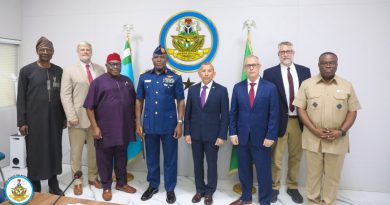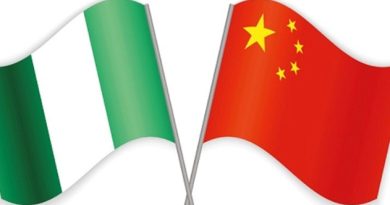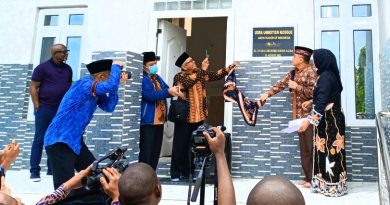50 years of Nigeria-Bangladesh Bilateral relation: Issues and Options for the next decade.
Bob Achanya.
The long-standing diplomatic relationship between Nigeria and Bangladesh, stretching over half a century, confronts challenges that transcend traditional forms of engagement. Official figures reveal that the economic interaction, reflected in trade volumes, languishes due to under-exploitation. The theoretical solidarity based on common heritage and development challenges has translated poorly into practical initiatives and coalitions that could address shared issues such as poverty reduction, health, and educational reform.
Issues
In a rapidly globalizing world, the inertia of Nigeria-Bangladesh relations could be detrimental to both nations’ aspirations for stronger positions on the global stage. The current global dynamics demand an alliance based on action and beneficial exchange rather than mere diplomatic niceties. The fact that two nations with rich cultural heritages, substantial human capital, and tremendous market potential navigate their international relationships without a significant emphasis on actionable, mutual growth is not just a diplomatic oversight—it risks becoming an economic and political liability. If left unaddressed, the ensuing decade may be one of stagnation—both for individual and collective progress.
The new Decade 2024-2034
The path forward must be rooted in mutually beneficial, respectful, and transformative collaboration that leverages shared objectives for tangible outcomes. Our visionary proposal would include the activation and operationalization of the long-overdue
Nigeria-Bangladesh Strategic Partnership Initiative (NBSPI), or what is
easily referred to as the Nigeria-Bangladesh Binational Commission, empowered to craft policies ensuring technology transfer, joint ventures in sectors like textiles and fintech, and cooperative stances in international forums. This will resolve the long-standing issues of challenges faced by Nigerian Students in terms of visas, financial transactions, and so on. The NBSPI can also ensure it tracks and closes the widening and embarrassing misdemeanors of a few disgruntled Nigerians who have heated the visa regime that has inhibited the much desired and south people-to-people, trade, and business exchanges.
More importantly, we advocate the immediate establishment of the Nigeria Chancery in Bangladesh to give teeth to the NBSPI initiative. The current situation is no longer in tandem with the geopolitical and economic realities. Nigeria must act fast! Additionally, Nigeria and Bangladesh must be seen to desire and encourage mutual investments in Textiles and Garments, educational exchanges, and healthcare research which could pave the way for breakthroughs beneficial to both societies. Encouraging the engagement of private sectors and civil society in a convivial, mutual, and reciprocal respect for win-win outcomes, can stimulate the innovation needed to propel bilateral relations into a new era of prosperity and influence for both friendly nations.

In this connection, the NBBTF and African Center for Asia Plus Bangladesh Studies’ strategic 10-year plan is escalating and promoting high-level interaction in the government and private sectors to foster the desired robust engagements.
To support and promote increased bilateral engagement with Bangladesh, the Nigeria-Bangladesh Business and Technology Forum (NBBTF), African Center for Asia Plus Bangladesh Studies (AfCA+BS), and the Ajaokuta Chamber of Commerce in January 2023, curated the first exploratory high-level trade mission to Bangladesh led by the Minister of Communication and Digital Economy, Prof. Ibrahim Isa Pantami, and focused on the ICT, CNG/LNG conversion technologies (as alternative energy), Textile and Garments, Agriculture, and the Pharmaceutical sectors, amongst others with very high success rating. The Private sector MOUs and Business-to-business interaction exposed the two sectors of both countries with positive sustainability plans and next-step activities that are so far, receiving traction for more robust trade, business, and investment.
As non-state actors, the Nigeria-Bangladesh Business and Technology Forum (NBBTF), African Center for Asia Plus Bangladesh Studies (AfCA+BS), and Ajaokuta Chamber of Commerce, Industry, Mines, and Agriculture (AJACCIMA) have been at the root of escalating and advocating for a holistic, robust, and results-oriented Nigeria-Bangladesh relations in Nigeria, attaining very modest milestone since inception in 2021.
The Nigeria-Bangladesh Business and Technology Forum (NBBTF) stands at the forefront of catalyzing transformative collaboration between Nigeria, Bangladesh, and Afro-Asian member countries. Founded in Q4, 2022, NBBTF is a dynamic platform with a reciprocal mandate, operating in alignment with the strategic initiatives of the Renewed Hope Initiative (RHI) under the Tinubu administration. NBBTF is not just a forum; it is a driving force shaping the future of economic collaboration between Nigeria and Bangladesh.
The African Center for Asia Plus Bangladesh Studies (AfCA+BS) is Bridging continents through scholarly engagement. As the scholarship backbone for NBBTF, AFCA+BS stands as a dynamic institution committed to advancing scholarly engagement between Asia and Africa. Established in the fourth quarter of 2022, AfCA +BS has swiftly become a hub for intellectual exchange, research collaboration, and the pursuit of excellence in knowledge creation and dissemination with particular emphasis on Bangladesh.
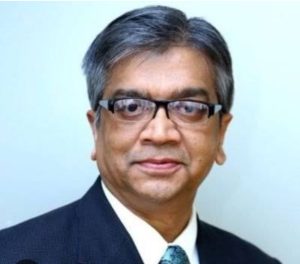
Business and Sector Pitch
The Ajaokuta Chamber of Commerce, Industry, Mines, and Agriculture (AJACCIMA) is positioned as a dynamic catalyst for the comprehensive development of the steel and broader business sector in Nigeria, with a mission to foster a conducive environment for sustainable growth, innovation, and collaboration across industries, emphasizing the unique potential and challenges of the Ajaokuta region.
Established in 2019 and officially registered as a company in 2021, ACCIMA is the brainchild of a collective of concerned Nigerian patriots, designed to address the strategic needs of the steel and allied industries. The chamber represents a collective effort to unite national and sector stakeholders, marking a pivotal moment in the resurgence of Ajaokuta’s economic landscape.
The Chamber provides the Private Sector trade and investment-related exposures involving the NBBTF and AfCA+BS and acts as the voice of the steel sector business community in Nigeria.
Broadly, AJACCIMA promotes, orchestrates, and advocates steel sector development, and addresses positive policy initiatives in the interests of the stakeholders and members; Encourages our membership to shop local and support steel sector initiatives in Nigeria; Connect and Convene the steel sector business community with the exhibition, trade fairs, conferences, information, resources, and tools necessary and relevant to sector development.
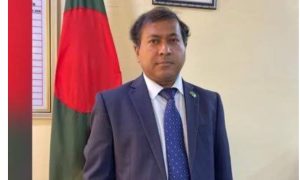
While engaging in world-class Chamber development and operations in line with global best practices AJACCIMA has the global objectives to:
Facilitate networking opportunities for businesses within the business and broader steel sectors.
Advocate for policies that promote growth and sustainability in Ajaokuta and beyond.
Provide a platform for knowledge exchange, innovation, and technology transfer.
Collaborate with local and international partners to attract investments and expertise.
Champion initiatives that contribute to the socio-economic development of the region by leveraging AFCFTA, the South-South Cooperation, and other global
With three High Commissioners to date namely, His Excellency General Kaikobad (pioneering), His Excellency MD Shameem, and the incumbent, His Excellency Rahman Masudur in his fourth year, so much has been collectively achieved to get the next decade on a great trajectory. During this period, the three Ambassadors did their best to ensure the proper scaling of the bilateral relations between Bangladesh and Nigeria. They had different issues and options resulting in the barometric indicators of the formal volume of trade, government-to-government, and people-to-people contact. The results and level of awareness, high-level contact as well and formal trade engagement will attest to the growth or otherwise of the fifty-year relationship. This evaluation at the end and before the change of guard at the High Commission in Nigeria offers the robust framework necessary for a reinvigorated partnership, positioning Nigeria and Bangladesh as pioneers of South-South cooperation on the international stage.
-Bob Achanya is the Group President of NBBTF, AfCA+BS, and AJACCIMA.


